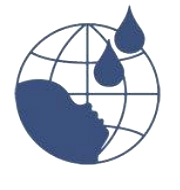Burundi: First Polio Outbreak in 30 Years
Burundi, a landlocked east-African country, has declared its first polio outbreak in 30 years. The outbreak was confirmed after a four-year-old child in the Isale district of western Burundi, along with two other children he was in contact with, were diagnosed with vaccine-linked polio. Additionally, poliovirus type 2 was detected in five samples from environmental surveillance of wastewater from the region.
Poliovirus type 2: a weakened strain of the virus contained in the oral polio vaccine
Poliovirus type 2 is a weakened strain of the virus contained in the oral polio vaccine. The virus can circulate among under-immunised populations for a long time, leading to vaccine-linked infections. The WHO has noted that the type 2 infection can cause acute flaccid paralysis in children, which is characterized by the acute onset of weakness or paralysis with reduced muscle tone.
Low immunity and prevalence of poliovirus type 2 in Africa
Burundi’s last vaccination drive against polio was in 2016, and the country’s immunity against the virus is considered to be very low. The WHO has also reported that circulating poliovirus type 2 is the most prevalent form of polio in Africa, with more than 400 cases reported in 14 countries in 2022.
Burundian government’s response
The Burundian government is planning a polio vaccine campaign in the coming weeks for children up to 7 years of age, and is also collecting more samples and considering the idea of opening more environmental surveillance sites for stronger monitoring.
Safety and efficacy concerns of the oral polio vaccine
While the four-dose vaccine is the best protection against polio, the oral vaccine can cause the disease in about two to four children per 2 million doses. In recent years, the oral polio vaccine has caused more cases of polio than the wild polio virus, leading to concerns about the safety and efficacy of the vaccine.
The need for timely action in protecting children
There is no treatment for polio, which mostly affects children under the age of five. The WHO has lauded the Burundian government for its effective disease surveillance, and stressed that timely action is critical in protecting children through effective vaccination.
Vaccine-derived polio outbreak in Democratic Republic of Congo
In addition to Burundi, the vaccine-linked polio virus has also been found in six children in the Democratic Republic of Congo’s eastern Tanganyika and South Kivu provinces. The global spread of vaccine-derived polio is still considered a high risk by the WHO, and the organization has emphasized the need for continued efforts to eradicate the disease.
Month: Current Affairs - March, 2023
Category: International / World Current Affairs


